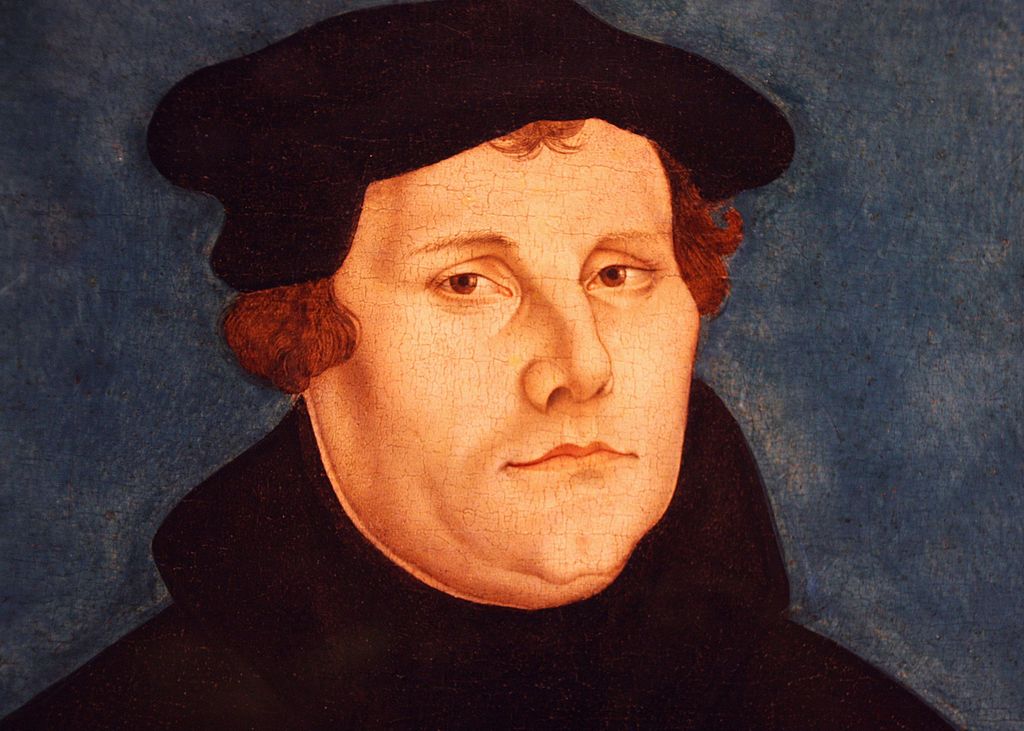It’s officially Fall in the Northeast – vibrant foliage, festivals, costumes, and candy. Autumn happens to be my favorite of the four seasons. Maybe it’s because I hardly experienced any seasonal changes in my native stomping grounds of Orlando, Florida.
What you might not realize is that Fall, or more specifically, the month of October is celebrated around the globe for more than falling leaves, Jack-o’-lanterns, and Halloween. On October 31, 1517 (now Halloween, then All Saint’s Eve), an Augustinian friar by the name of Martin Luther submitted his Ninety-Five Theses to his fellow professors by nailing them to the wall of All Saint’s Church in Wittenburg, Germany. The theological debate that ensued eventually ballooned into one of the most significant movements in history – the Protestant Reformation.
Throughout his adult life, Luther was determined to combat the corruption he saw in the Catholic Church with the authoritative and abiding words of Scripture. Why? Because he had firsthand experience of the peace and freedom that comes in knowing Jesus. The despair, deep-rooted hate, and self-disgust he shouldered for years melted when he finally realized that salvation from sin, Satan, and death cannot be earned. Salvation is a gift of God to sinners accepted by grace alone through faith alone in Jesus Christ alone.
Ephesians 2:8-10 states, “For by grace you have been saved through faith. And this is not your own doing; it is the gift of God, not a result of works, so that no one may boast. For we are his workmanship, created in Christ Jesus for good works, which God prepared beforehand, that we should walk in them.”
This understanding of salvation is drastically different than what Luther had been taught. Religion wore him out. The same is true for us today. Religion – living by an external, self-imposed set of rules or axioms – ultimately leads to despair. It may produce some superficial change, but it will never produce the transformation or metamorphosis (think caterpillar to butterfly) that only comes through faith in the life, death, and resurrection of Jesus Christ. The gospel stands in direct opposition to merit driven religiosity.
Luther also recognized the insufficiency of religion to exterminate rebellion toward God in the human heart. He tried to kill the disease of sin in his heart with religion, but it only exacerbated his hate. Once asked if he loved God, he shouted, “Love God? Sometimes I hate Him!” All that changed, when Luther experienced the sweetness of God’s forgiveness and grace. Just like Luther, in the gospel, we discover the all-satisfying object of our joy, adoration, devotion, and worship – Jesus Christ. We were created by him and for him! And when we see his glory, our rebellious, stony hearts are softened. And we gladly forsake our idols and cling to Christ.
Glance just a few verses above our earlier text, and you’ll read this:
“And you were dead in the trespasses and sins in which you once walked, following the course of this world, following the prince of the power of the air, the spirit that is now at work in the sons of disobedience—among whom we all once lived in the passions of our flesh, carrying out the desires of the body and the mind, and were by nature children of wrath, like the rest of mankind. But God, being rich in mercy, because of the great love with which he loved us, even when we were dead in our trespasses, made us alive together with Christ” (Ephesians 2:1-5).
The gospel destroys the pride, rebellion, and hate present in every human heart. At the moment of salvation, God breathes new life into our cold, dead souls, and reconciles us to himself and one another through his Son, Jesus Christ.
Five hundred years later, we are still experiencing the ripple effects of the Protestant Reformation. We, believers, are heirs to the important work that Luther and the other Reformers did in returning the church to God-centered theology. And like them, we are tasked with guarding the good deposit of the gospel that has been entrusted to us (2 Timothy 1:14). How? By obeying the words of our Lord Jesus Christ,
“Go therefore and make disciples of all nations, baptizing them in the name of the Father and of the Son and of the Holy Spirit, teaching them to observe all that I have commanded you. And behold, I am with you always, to the end of the age” (Matthew 28:19-20).
Consider this throughout the remainder of the season. Like the centuries of saints that came before us, we have been changed by the transforming power of the gospel. And we have the privilege of continuing the mission of declaring and demonstrating the good news of Jesus Christ to the world around us. That is something worth celebrating not only in October, but every month of the year.
If you’re interested in learning more about the Protestant Reformation, pick up the short, pithy primer The Reformation: How a Monk and a Mallet Changed the World by Stephen J. Nichols.
Soli Deo Gloria! (Glory to God alone!)

